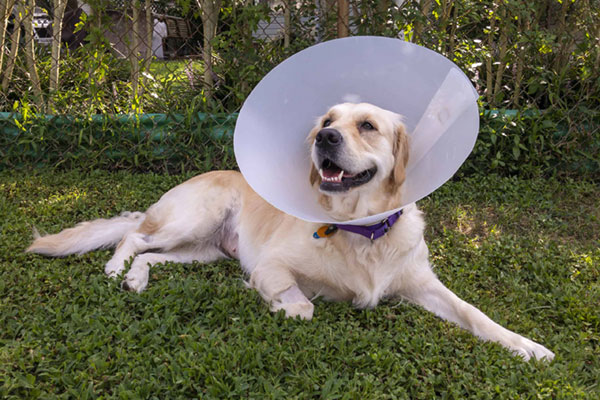Unless you are planning to show or breed your dog, you should spay or neuter it. Here’s why:
- Reduces overpopulation, particularly if you allow your dog to be outside unsupervised.
- Benefits for female dogs include:
- Spaying drastically reduces her risk of mammary cancer, which is fatal in 90% of dogs.
- Spaying prevents heat cycles and eliminates crying, erratic behavior, and the bloody discharge of her heat cycle.
- Spaying reduces her risk of uterine infections and cancer.
- Benefits for male dogs include:
- Neutering your male dog eliminates his risk of testicular cancer.
- Neutering reduces inappropriate behaviors, such as roaming (to find a mate), marking inside your home, and fighting with other male dogs.
- Spaying or neutering is much less costly when compared to the expenses associated with the behaviors or diseases mentioned above.
- Sterilizing your dog is safe, with few complications.
When Should I Spay/Neuter my Dog?
The AAHA states smaller dogs (under 45 pounds projected adult body weight) should be neutered at six months, and spayed prior to their first heat (5 or 6 months of age).
Larger dogs (over 45 pounds projected adult weight) should be neutered after growth stops, usually between 9 – 15 months of age. When to spay a larger female dog? It depends on several factors, so your veterinarian can help you narrow down the recommended window of between 5 and 15 months.
The risk of waiting longer? Your dog might reach puberty and begin the undesirable behaviors listed above.
The decision regarding when to spay or neuter your dog is one you should make with your veterinarian – he/she will have the most up-to-date knowledge of your dog’s particular breed and potential disease risk and help you make an informed decision.
What Are the Risks of Spaying or Neutering?
Surgical complications are rare but do exist. Some of these include adverse reactions to anesthesia, abnormal bleeding or post-operative infections. Talk to your veterinarian about his/her past experiences with these rare complications.




